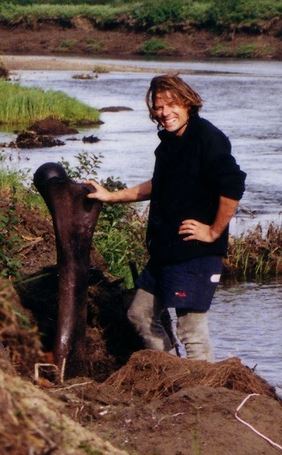Provocations Public Lecture
Event description
The original Dune: how ancient human history in Arabia gave us modern lifestyle diseases
Date: Wednesday, 10 April
Time: 3.30 pm for a 4 pm start. The public lecture will be between 4 pm and 5 pm. Light refreshments will be available at the venue.
Venue: Charles Sturt University, Building 802, Room 1161, Major Innes Road, Port Macquarie
This lecture is free to attend. It will also be live-streamed. To access this option, you can choose the live-stream ticket when registering for the event.
Abstract
As modern Humans moved Out of Africa and around the world just 55,000 years ago, they were forced to rapidly adapt to multiple new environments. As a result, humans are a great model animal system to study rapid genetic adaptation to climate change. DNA from ancient human skeletons (dating back as far as 46,000 years) shows how and when we moved Out of Africa and around the world, and how the critical step was a major phase of genetic selection for cold. Surprisingly, this appears to have occurred during a long unknown period when we were trapped in the Arabian Peninsula. During this ‘Arabian Standstill’ from around 80-55,000 years ago, major networks of genes involved in the regulation of fat, nerves, and skin all changed. Related genes were also incorporated from Neandertals, who we interbred with just as we left Arabia. Surprisingly, many of these same genes are now associated with major modern diseases and disorders, from autism to obesity and cardiovascular disease, heralding a brand new field - evolutionary medicine.
Speaker

Professor Alan Cooper is the Professor of Evolution and Environmental Change at Charles Sturt University, Albury. His multi-disciplinary research integrates genomics, climate and environmental change, bioinformatics and mathematics, archaeology, microbiology, palaeontology, and medical sciences and has resulted in over 35 papers in Nature and Science. He has been centrally involved in the field of ancient DNA since the earliest days, working with Svante Pääbo (Nobel Prize 2022) and Allan Wilson at UC Berkeley in 1989. He was the inaugural Professor of Ancient Biomolecules at the University of Oxford (2001), and an ARC Federation, Future, and Laureate Fellow at the University of Adelaide from 2005-2020, where he built the Australian Centre for Ancient DNA. He has the South Australian Scientist of the Year (2016/2017), Eureka Prize (2017), and led the multiple-award winning Aboriginal Heritage Project to reconstruct pre-European Aboriginal Australia history using ancient DNA. More information is available at www.blueskygenetics.com.
Tickets for good, not greed Humanitix dedicates 100% of profits from booking fees to charity
